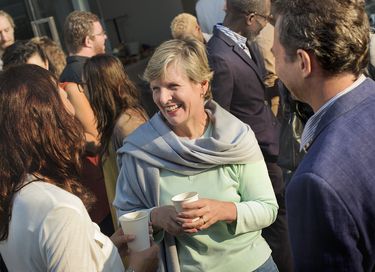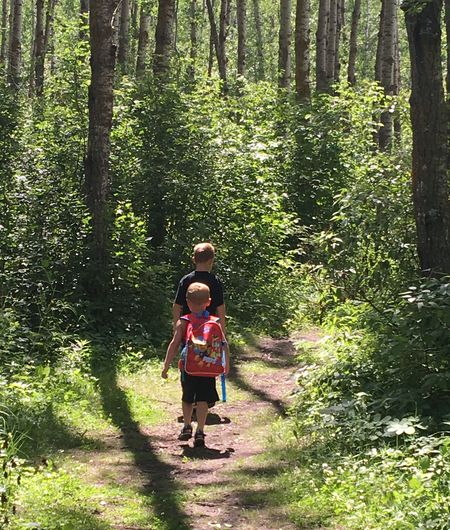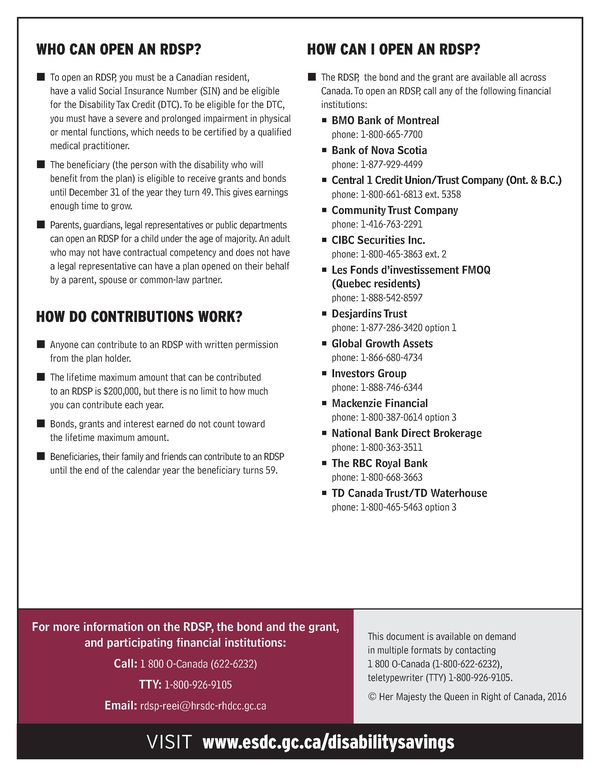Autism Alberta AGM – August 20, 2016

I used to think Annual General Meetings were boring, not something that would interest me. That changed a lot when I got involved in the autism community. I learned that Annual General Meetings were my chance to find out what was going on in the broader autism world. AGMs were my chance to try to shape a future for my son and my family. They were my chance to meet families just a little further down the road than I was, families that freely shared from their experience and helped me navigate the next set of challenges. In short, I learned that I was short-changing myself if I didn’t attend. Annual General Meetings have become a way to meet more of the autism community across Alberta. Yes, it takes a day out of my life, but it’s also a day that gives me life . . . and connection . . . and community. I invite you to join us. See if it does the same for you.
 Autism Alberta’s Annual General Meeting
Autism Alberta’s Annual General MeetingSaturday, August 20, 2016
10: 00 AM – 3:00 PM
Board Room
GH Dawe Centre
56 Holt St
Red Deer, Alberta
RSVP to info@autismalberta.ca
by 4:00 PM, Thursday, Aug 18, 2016
Child Care is available, but we MUST know your needs by 4 PM, August 12, 2016. Please note, this is a week earlier than the general RSVP.
Our Summer Fun
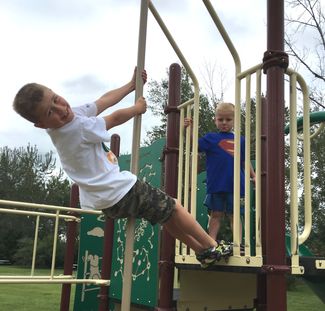 June was a crazy month for me: finishing up at school, transition meetings and activity wind-downs. For Conor, it was very obvious that he had had enough and needed a break and change of pace. He stayed very regulated right until the end, but as soon as school was done on that last day, he was out that door! Summer holidays had begun!
June was a crazy month for me: finishing up at school, transition meetings and activity wind-downs. For Conor, it was very obvious that he had had enough and needed a break and change of pace. He stayed very regulated right until the end, but as soon as school was done on that last day, he was out that door! Summer holidays had begun!
I learn something from every school vacation and how to make it as sucessful as possible for everyone. I love the idea of ‘no schedule’, but in reality we still have to have some routine. Every day of summer I have to make sure that Conor’s sensory needs are met so he stays regulated. We can have some free time in the morning, but not too much! He is a sensory seeker; each year he is learning more about how to meet his needs, and so am I. I am so fortunate to have our respite worker with us. It allows us to do so much more, I know that Conor is safe, and I can see that his younger brother gets to enjoy these activities and outings just as much as he does.
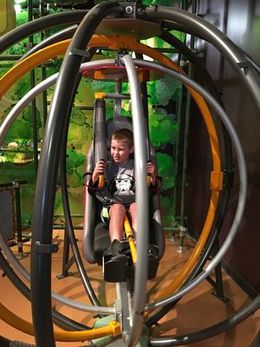
Outings in the community give Conor the opportunity to practice social skills and life skills. The more we do these, the more I see progress. We still continue with behaviour therapy over the summer, as well as some school work (reading, writing and math). I would love for him to not have to do this over the summer break, but I know that if we don’t, the transition back to school and into Grade 2 will be a lot more difficult for him.
In August he will attend a camp with his respite worker, just to have a little bit more routine before going back to school a few weeks after that.
It may sound like we are very busy, but we do have down time. That is just as important for Conor, but I have to be careful where it is in his day. Likewise, on our day trips I have to be aware of how the longer drive affects him. We can do it, but he has to have a lot of physical activity to offset the longer period of sitting.
I am really enjoying the change of pace and much more time with my boys. I hope that all of you are enjoying their summer, whatever your plans (or no plans) are!
Empathy and Earthworms

I don’t know when I began to fear the movement of my own hands, the consequences of my own action and inaction, but I have dreaded all the chaos I could cause, all the ruin I could fail to prevent, for as long as I can remember.
In my childhood as well as into my adolescence, I was seen as something of a walking, talking encyclopaedia by my teachers, my peers – all but those few closest to me, really. To the world at large I was a robot, an automaton in miniature: all brain and no heart. I fit easily enough into the stereotype of a cold, indifferent intellectual even then, I suppose, considering my neutral facial expression, which tended to fall into a dour frown, my disinterest in all things personal, my precocious preoccupation with grammar and philosophy, and my hyper-precise, academic use of language. (I once told another little girl I found her “rude and inconsiderate”, to which she replied that I should “stop using such big words”, which is silly – I only used the one.) Even now, as a university student, I retain a reputation for cool arrogance, for icy, unfeeling conceit. Even now, from time to time, a friend, a person I know to care for me deeply, will say, entirely free of any malice, “Ah, but you wouldn’t care about that, would you?” my indifference assumed – my insensitivity, my incapacity to feel easily deduced from my diagnosis.
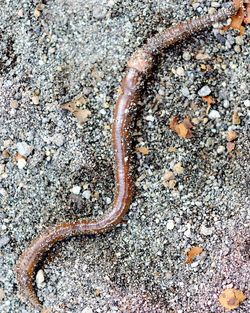
Now, worms are decent at looking out for themselves, to be certain. They run on instinct, mainly, but they do have a teeny little bi-lobed brain at one end. A earthworm will squish all its segments together to make itself smaller when it senses danger, and even escape to the surface if it feels the vibrations of a digging mole. Pretty clever, for a worm. But I worried for them, worried for those soft, squishy invertebrates, small and blind as they are. I worried that I wouldn’t see them, that they wouldn’t be fast enough to escape my booted feet, so I walked slowly, carefully on raining days, always watching the ground, staring at the pavement and my own feet to better avoid any tiny creature who wished to share the walkway.
Later in the day, when the clouds parted and the streets began to dry, what few worms remained on the sidewalk waiting to bake and die in the coming sun were my primary source of distress. I couldn’t bear the idea. Instead, as I walked home, I would stop every few feet to pick up a straggler between two fingers and place it safely on a patch of nearby grass. Earthworms wriggle terribly when distressed, which makes them difficult to pluck from the ground, especially in gloves. (And wearing gloves is important, as the salt of human skin is toxic to earthworms, albeit unlikely to cause lasting harm.) It was such a relief to see them back where they belong, away from unwary feet and the uncaring radiation of a too-hot sun.

I never meant to be cruel.
I understand that I can seem unaffected, unmoved. Aloof and unfeeling. Untouched by the world around me. But I do care. I’ve always cared.
Empathy is a process, a journey. None of us was born in possession of perfect understanding nor perfect wisdom. We have each of us a great capacity for cruelty. Flawed as we are, we lash out. We fail to resist our worst impulses. We fail to grant one another the charity deserved of our fellow human beings. We have likewise a great capacity for kindness – a capacity to reach out, to recognize our mutual and separate struggles, to let go of our own limited perspectives and learn to see the world through another’s eyes.
Empathy is a process, a conversation. It is never anything so simple as neurotypical or autistic. It is taught. It is learned. It is the connection we create when we begin the journey of loving those different from ourselves.
You Are Invited: Share Your Thoughts on Research in Autism
What do you need from researchers? What should research in autism and other areas of neurodiversity look like? Your view counts!
The NeuroDevNet Research Network is holding an all-day self-advocate/family engagement consultation and workshop on Wednesday, September 28 at the Hotel Arts, 119-12 Ave SW, Calgary. NeuroDevNet is a cross-disability association of Canadian researchers seeking transformative advancement in developmental disabilities. Many researchers in Alberta are a part of this Network, which seeks to hear and respond to what individuals and families touched by autism and other developmental disabilities need and want from the research community.
Reserve your place at this event by visiting http://braindev2016neurodevnet.weebly.com/family-engagement.html. If more information is needed, feel free to contact David Nicholas at nicholas@ucalgary.ca – phone: (780) 492-8094.
Jeff’s Marathon Journey – July Update
Hello everybody, I’m back again with another update. I’ve been doing these every two months, but will try to get one out a month now that I’m deep into my training program. Some may be shorter than others, but I’ll try and keep them interesting.
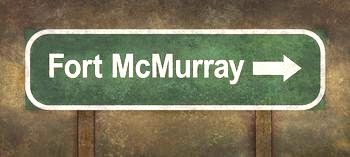
Ben has been doing relatively well lately. Yeunsuk mentioned something to me recently that I guess I had noticed as well, but we had never really discussed – Ben seems to function very well immediately following major changes, more so than even than his neurotypical sister. We noticed this when we were first evacuated to Edmonton – during the first weeks of our journey, he displayed a calm demeanour for the most part, and slept very well during the hotel-hopping period. A few weeks on, his sleep patterns regressed into their terrible normal state, but during that first period, he certainly surprised us. For the final four or five weeks before we came home, he was going through a really rough patch again – not falling asleep until after 10pm. Waking up at 2am, or 4am if we were lucky. Then when we got back home, bang, he’s sleeping like a champ again! Since returning, he’s slept uninterrupted through 29 of 32 nights in his bed… yes, we actually count the nights – don’t judge.
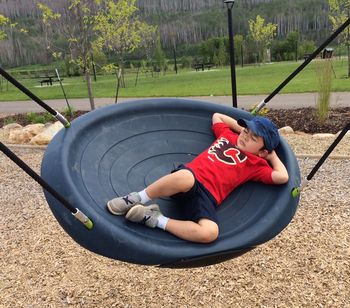
Ben chilling at the park in Fort McMurray, after weeks on the road running from The Beast!
I’ve done a fair bit of reading on sleep issues with ASD kids over the last few years, and it’s funny how inconsistency seems to be one of the consistencies with this particularly problematic symptom. Oftentimes, after weeks on end of not receiving more than 3-4 hours of uninterrupted sleep, Yeunsuk and I will be right at our wits’ end and ready to delve into deep conversation on the viability of prescription medicines with Ben’s pediatrician. Then, boom! – a beautiful night’s sleep followed by weeks of actually having to wake Ben up at 8am to get him to his 8:30 preschool start on time. We’ve repeated this pattern countless times, and each time we get into the good periods, we will purposely avoid speaking about it in fear of jinxing something that may be more than a just a good streak. Secretly, I’ll start thinking to myself that he’s finally outgrown the poor sleep cycles and we can soon start discussing them openly like they won’t return. And just when I start getting that “YES!” feeling…. I’ll wake up to finger clicking, leg slapping, and monotone yells drifting over the baby monitor, wipe the sleep out of my eyes, leer at the clock, and realize it’s 2am and Ben’s likely been standing on the end of his bed yelling at the floor for the past God-knows-how long while I drifted awake. Rinse, repeat. Rinse, repeat. Such is life!
An update on training: I’m now less than four months out from the big day in New York City – November 6th is fast approaching. I started a customized 20-week training program through the New York Road Runners Virtual Training service. It’s been fantastic so far – I have an online profile where I can go and upload my running information each day, and the program tailors to my abilities with an e-coach that provides feedback and answers any questions I may have. Currently in week 5 of 20, the program is starting to ramp up. My legs are consistently sore (the good kind), and the times of my short runs are getting quicker while my long runs are getting longer… so I guess everything is working as planned! I will be running two more half-marathons before NYC – one in Edmonton on August 21st, and another in Fort McMurray on September 18th. My hope is to crack the 2 hour mark on both of these runs, which will be a positive indication that I’m on my way to completing NYC within my goal time… I’m not totally sure what that goal time is yet, but I’ll let you know as soon as I do.

If you would like to donate to the Fort McMurray Autism Support Group and help me bump up the motivation for training, please click below and donate!
Until next time,
Jeff
Click here to support Jeff’s Marathon Journey
The Trials of Toilet Training An Older Child With Autism
From the Autism Awareness Centre Blog:
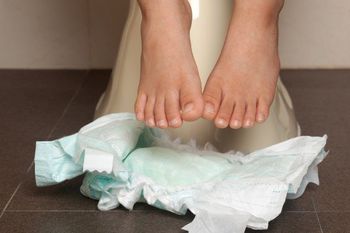
By the time we started really trying to get him out of diapers, Marc had already used the toilet successfully for urination for three years. He knew when he was going to have a bowel movement, because he would ask for a Pull-up and then ask to be changed when he was done. He never had accidents and could hold his bowel movements until he was home, demonstrating control. With all of these signs in place, he seemed ready to start the toileting process.
My husband and I had tried various methods over the past three years. We used picture symbols breaking down the process of toileting on a Velcro strip. We kept a bowel movement chart for three weeks so we could see what time of the day Marc tended to have his bowel movement, and then we sat him on the toilet for those times. We created a social story for toileting. When none of those methods worked, we used a behavioural contingency plan with photos of Marc sitting on the toilet, a photo of broken pieces of Oh Henry bar in the toilet, and a photo of his reward – ripple chips. If he didn’t poop in the toilet (shown with a red line through the photo), then there would be no chips. None of these methods worked.
We Want to Hear From You!
Free Money!

If your loved one qualifies, all you have to do is open an RDSP account to receive a bond of $1000 per year for up to 20 years. You don’t have to contribute any money to receive the bond.
If you or anyone makes a financial contribution to the RDSP, the government will contribute even more money – grants of up to $70,000 over a lifetime. Government grants are based on the family’s income. If your loved one is an adult, even if she or he lives at home, that person is considered the family. That means the government will give them the $1000 bond, plus the maximum contribution each year, assuming their income is low. As little as a $1500 contribution made in a calendar year can trigger a bond plus grant of $4500 annually.
If you ever worry about how your loved one will survive when you are gone, opening an RDSP is a definite must.
Click here to download the factsheet below as a PDF file
The Gift of Appreciation
 This has been the summer of real wins for our family. I know it’s early in the season and the tide of transition is lurking around the corner, but we’re going to go ahead and drink from the saucer anyway, because our son, nicknamed "The Captain", who is on the spectrum, has filled our cup to the point that it’s spilling over.
This has been the summer of real wins for our family. I know it’s early in the season and the tide of transition is lurking around the corner, but we’re going to go ahead and drink from the saucer anyway, because our son, nicknamed "The Captain", who is on the spectrum, has filled our cup to the point that it’s spilling over. After returning from a week of surge after surge of sensory-pinging activities and venues, our son did not hide from the transition of leaving our home. We got out of the house without being scratched, bitten or hit – WIN.
After returning from a week of surge after surge of sensory-pinging activities and venues, our son did not hide from the transition of leaving our home. We got out of the house without being scratched, bitten or hit – WIN. Curious, my husband put my son down and grabbed the little green bike from the back of the shed.
Curious, my husband put my son down and grabbed the little green bike from the back of the shed. I appreciated the grass under my feet.
I appreciated the grass under my feet.Occasio Has Been Infiltrated By Pokémon!

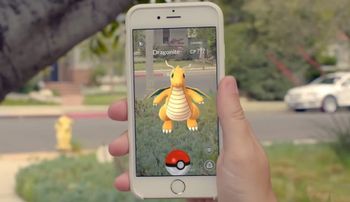
Photo courtesy of gearnuke.com.
-
Friday, July 22: We discovered how many Pokémon we could catch at K-Days and Taste of Edmonton! First, we took in the K-Days parade and all of its beautiful floats, amazing performers and fun mascots. After that, we made our way into Taste of Edmonton to enjoy some of the city’s best food and drinks, all in one place. If you weren’t there, you may never know if we saw a Dragonite while having lunch.
-
Monday, July 25: Occasio took a walking tour downtown, where we learned about Edmonton’s historic buildings, a ghost horse, and even a spaghetti tree (yes that’s a thing)! Those with smartphones loaded up the Pokémon Go app and brought it along. Downtown Edmonton is a goldmine for finding Pokémon!
Still Ahead
-
Photo courtesy of rocknaugust.com.Monday, Aug 2: Rock ‘N August in St. Albert is a super-charged show-and-shine, where you can check out all kinds of hot rods and classic cars. If you happen to have Pokémon Go on your phone, we’d love for you to come along and keep us safe from any Aerodactyls or Growlites hiding under the hoods!

